-

The Questions to Ask About Telecommuting Before Someone Else Does
Whether allowing work from home is a good idea depends on the organization, the role, how centralized your business is, the strength of your management team, and many other variables. But if you are going to allow more telecommuting, you need certain ducks in a row.
March, 2023
-
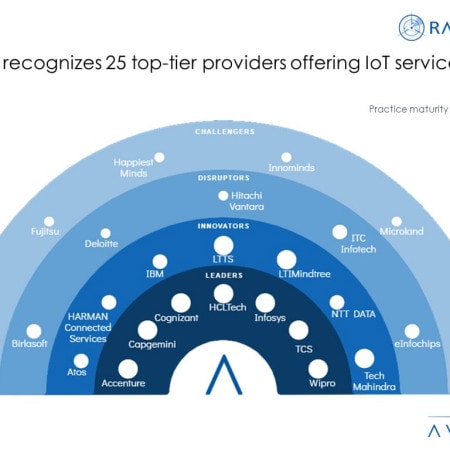
Creating a Connected Ecosystem to Speed Innovation and Growth
IoT technology has become mainstream, as evidenced by the steady rise in the adoption of connected devices. The share of production-grade projects increased from 68% in 2021 to 73% in 2022. Across three key segments—Industrial Internet of Things (IIoT), connected infrastructure, and Consumer IoT—IIoT continues to lead in adoption driven by smart manufacturing and Industry 4.0 use cases, including digital twins. The connected infrastructure segment saw significant growth pushed by smart city initiatives, including urban mobility, energy management, and waste management. Sustainability has emerged as a new growth lever in IoT services. These and other trends focused on the demand-side and supply-side are covered in our Internet of Things Services 2023 Market Insights™ and Internet of Things Services 2023 RadarView™, respectively.
May, 2023
-
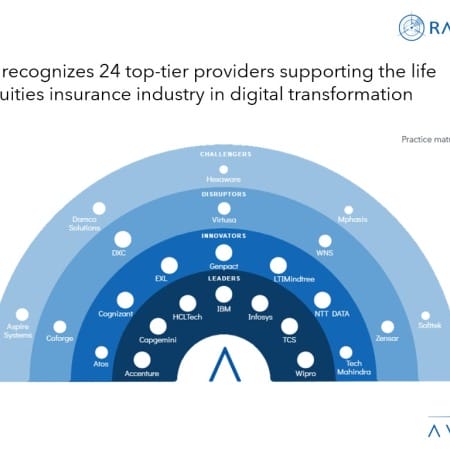
Life and Annuities Insurance: Reshaping Customer Experience with Digital Technology
Amid evolving customer demands, the life and annuities (L&A) insurance industry has been under pressure to offer personalized digital experiences and launch innovative insurance products to tap into new customer segments. To alleviate this pressure, L&A insurers are adopting digital technologies to overcome legacy challenges, augment distribution channels, and enhance customer experience. They are also streamlining operations and launching sustainable insurance products. As this requires a strong insurance domain knowledge and technological expertise, L&A insurers are collaborating with service providers for digital transformation. Both demand-side and supply-side trends are covered in our Life and Annuities Insurance Digital Services 2023–2024 Market Insights™ and Life and Annuities Insurance Digital Services 2023–2024 RadarView™, respectively.
July, 2023
-
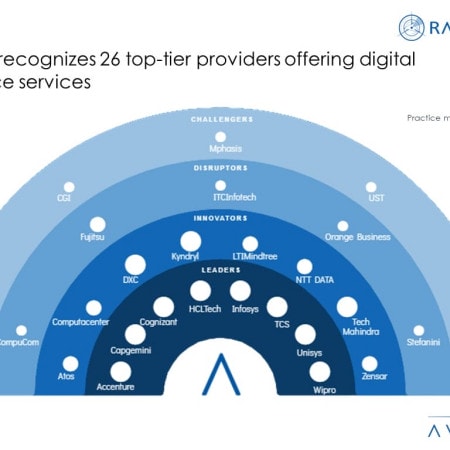
Digital Workplace Services: Driving Organization Agility and Innovation in the Era of Hybrid Work
The hybrid workplace has made significant strides since its inception in 2020, with the 2–3-day work-from-home model being widely accepted. Enterprises are dedicated to enhancing employee experience through outcome-based engagements with service providers and experience-level agreements (XLAs) by leveraging emerging technologies such as AI/ML, analytics, IoT, and automation; creating new possibilities in the workplace; and fostering increased collaboration, productivity, and employee satisfaction. These trends, among others, are covered in Avasant’s Digital Workplace Services 2023 RadarView™ and Digital Workplace Services 2023 Market Insights™.
August, 2023
-

Leveraging Generative AI to Enhance Developer Productivity
This research byte sheds light on how service providers and enterprises can leverage generative AI to enhance developer productivity. By harnessing the power of generative AI, developers can accelerate software development, convert between coding languages, improve code quality and documentation, build innovative solutions, and streamline workflows, thus enhancing their productivity.
October, 2023
-
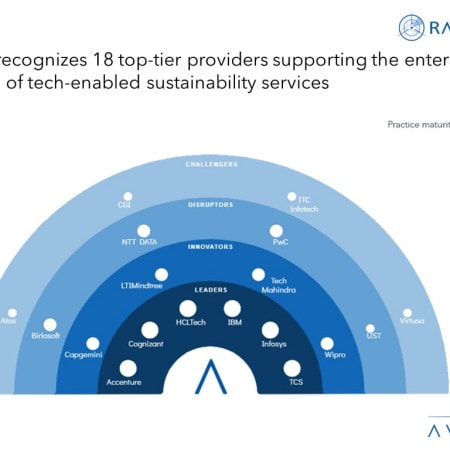
Tech-enabled Sustainability Services: Leveraging Digital Technology for Integrating Sustainability Into Core Business Operations
Enterprises are integrating sustainability into core business operations due to increased regulatory disclosure requirements and pressure from internal and external stakeholders. Manufacturing, BFSI, retail and CPG, and utilities and resources industries are leading the adoption of sustainability services through projects in green IT, green financing, and sustainable product design. While cloud and automation have found their way into production sustainability projects, enterprises are still gauging the effectiveness of next-generation technologies such as Gen AI for tackling sustainability challenges. Both demand- and supply-side trends are covered in Avasant’s Tech-enabled Sustainability Services 2023–2024 Market Insights™ and Tech-enabled Sustainability Services 2023–2024 RadarView™, respectively.
November, 2023
-
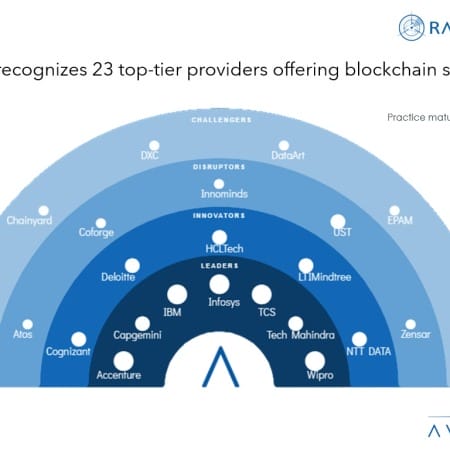
Blockchain Services: Charting the Path to New Opportunities in Blockchain
Over the past two years, enterprise adoption of blockchain services has increased gradually, with more projects moving to the production stage. Financial services lead this trend due to the increased traction for use cases such as cross-border payments and trade finance, P2P transactions, and asset tokenization; however, challenges persist, hindering mass adoption. In addition, the application of blockchain to drive sustainability initiatives has emerged as a new lever to enhance trust and transparency. To tap into emerging use cases and address the developments above, service providers emphasize inorganic expansion and asset development. Both demand- and supply-side trends are covered in Avasant’s Blockchain Services 2023–2024 Market Insights™ and Blockchain Services 2023–2024 RadarView™, respectively.
December, 2023
-
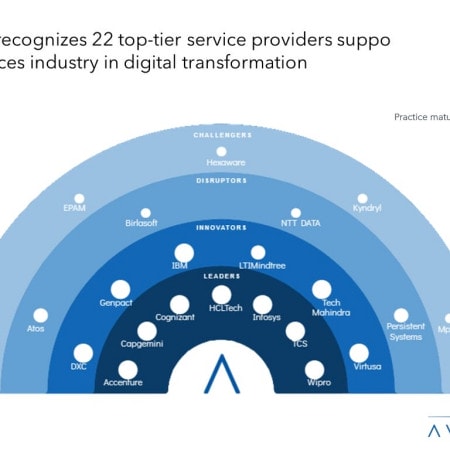
Breakthrough Innovation through Digitalization in the Life Sciences Domain
The Life Sciences Digital Services 2024 RadarView™ can help life sciences enterprises craft a robust strategy based on industry outlook, best practices, and digital transformation. The report can also aid them in identifying the right partners and service providers to accelerate their digital transformation in this space. The 86-page report also highlights top market trends in the life sciences industry and Avasant’s viewpoint.
February, 2024
-
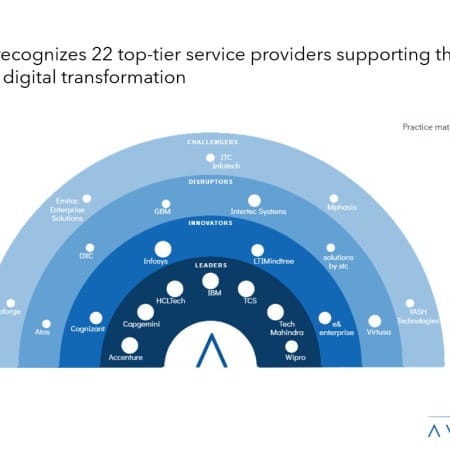
GCC Region: Powering GCC Region’s Future Using Digital Technologies
Amid economic diversification through digital transformation, enterprises in the GCC region are facing the challenges of managing profitability while catering to the fierce digital talent crunch. The region is bridging the digital skills gap by training local talent and attracting foreign talent with visa schemes and easing labor laws. Enhanced focus on augmenting citizen experience, innovation through AI adoption, improved cyber posture, and a sustainable future is pushing regional authorities and firms to collaborate with leading service providers to develop digital solutions and optimize costs.
February, 2024
-
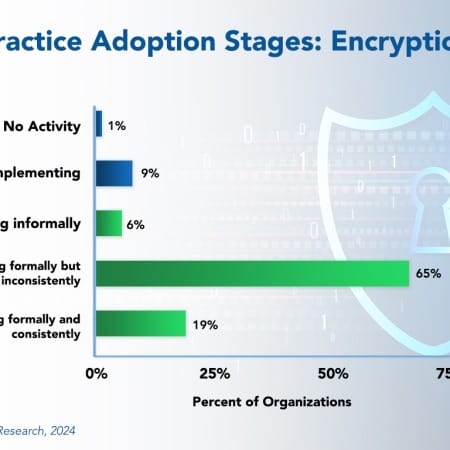
Inadequate Encryption Might Be a Recipe for Disaster
Each year, hundreds of millions of sensitive personal records are exposed by hackers and cybercriminals. Encryption is an essential security control and part of a company’s security policies and procedures. Yet, despite high practice rates, few IT leaders encrypt their data consistently. This Research Byte summarizes our full report, Encryption Best Practices.
March, 2024
-
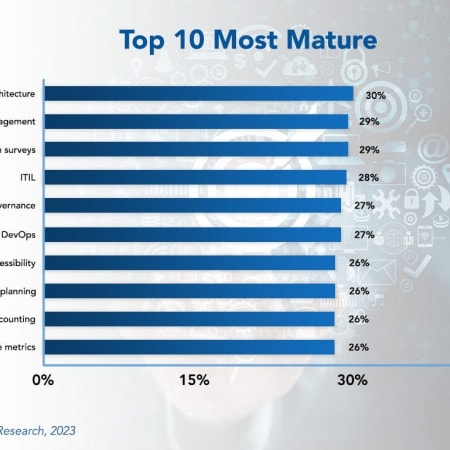
Enterprise Architecture Tops List of Most Mature Best Practices
Avasant has released its major annual study on 35 IT management best practices, with enterprise architecture topping our list of most mature practices. This Research Byte highlights some of our findings on the most mature practices, along with an overview of the contents of the full study. The full study analyzes the growth and maturity of all 35 best practices, which are grouped into five major categories: IT governance, IT financial management, IT operational management, IT security and risk management, and application development.
March, 2023
-
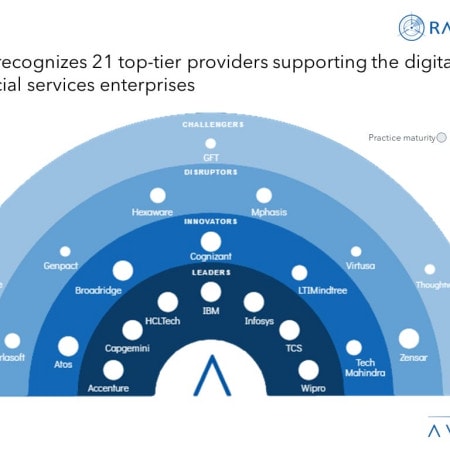
Driving Innovation in Investment Avenues and Optimizing Costs
Despite a challenging business environment, financial services firms are investing in digital technologies to improve cost efficiency and capabilities. Digital assets have become an increasingly popular alternative investment avenue amongst the customers of private and wealth managers. Financial services firms are also allocating significant resources to cybersecurity measures due to growing cyber threats. Stringent financial regulations mandate ESG investment scrutiny to avoid greenwashing of the tagged investments. To address these issues, financial institutions are leveraging digital technologies to optimize operations, deliver efficient investment services, and enhance customer experience while mitigating risks. Both demand-side and supply-side trends are covered in our Financial Services Digital Services 2023–2024 Market Insights™ and Financial Services Digital Services 2023–2024 RadarView™, respectively.
May, 2023
-
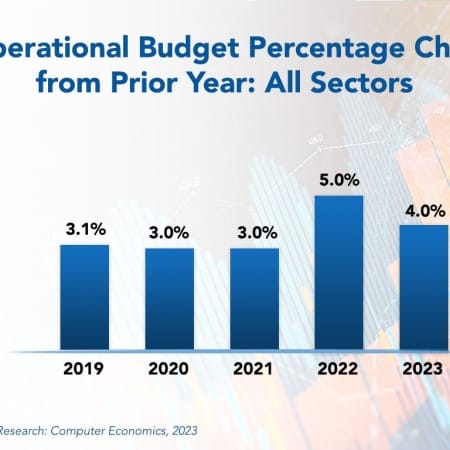
Rain or Shine, IT Budgets Refuse Decline
The IT spending outlook for 2023 can best be described with the old British slogan, “keep calm and carry on.” For at least a year, enterprises have been expecting the recessionary shoe to drop as central banks raised interest rates to fight inflation. War in Ukraine and increasingly brittle supply chains have not helped. By now, we would have expected more companies to be cautiously preserving cash, preparing for a recession. And yet, for the most part, businesses are not cutting IT budgets. This research byte is a brief description of some of the findings in our IT Spending and Staffing Benchmarks 2023/2024 study.
July, 2023
-
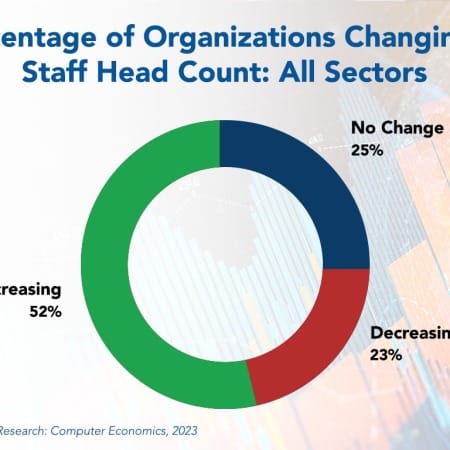
IT Staff Growth Mixed Bag
There have been quite a few competing pressures on IT hiring in recent years. Organizations need more talent, especially those that understand the needs of business and the art of the possible. On the other hand, labor has gotten more expensive and harder to find. Combine the push and pull from these competing factors with economic uncertainty, and this is one of the stranger hiring years in recent memory. This research byte is a brief description of some of the findings in our IT Spending and Staffing Benchmarks 2023/2024 study.
August, 2023
-

Data and Cloud: The Silent Soldiers of the Gen AI Revolution
Generative AI is the talk of the town and there is a lot of hyperbole about its capabilities and use cases. However, the true value will be derived by organizations that are able to build the right data and cloud environments that can enable Gen AI applications. In this research byte, we explore the actual maturity of generative AI and what its foundational elements are. We also discuss how service providers need to focus on building services and offerings for helping their customers build the data and cloud environments required to derive Gen AI value. We highlight the efforts of one such service provider, Infosys, based on its recent annual conference, Americas Confluence 2023, held in September.
October, 2023

 Grid View
Grid View List View
List View